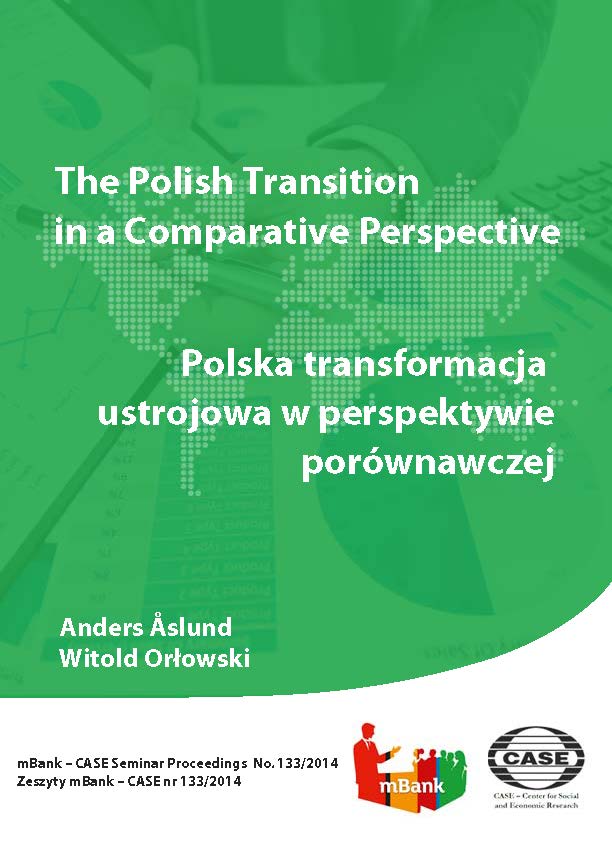 Homepage CASE
Homepage CASE
Selected values

133rd mBank-CASE Seminar Proceedings: The Polish Transition in a Comparative Perspective
-
ANDERS ÅSLUND
Articles from this author:
-
153rd mBank-CASE Seminar Proceedings: Will Ukraine Be Able to Establish Real Property Rights?
Over time, the necessary economic reforms have become so obvious that they have become politically possible in most places. The great problem has become the establishment of real property rights. By and large, Central and Eastern Europe have managed to accomplish that not least thanks to support from the European Union. In the former Soviet … Continued
-
148th mBank-CASE Seminar Proceedings: Russia’s Crony Capitalism: Stagnant But Stable
The Russian economy is caught in stagnation, but thanks to a skillful macroeconomic policy, the economy has stabilized. The current economic model is dualistic. On the one hand, the so-called systemic liberals are in charge of macroeconomic policy, which they pursue eminently. On the other, President Vladimir Putin allows state corporations, cronies, and law enforcement … Continued
-
153rd mBank-CASE Seminar Proceedings: Will Ukraine Be Able to Establish Real Property Rights?
-
Witold M. Orlowski
In 1989, Poland stood out as a country in chronic political and economic crisis. It had been ravaged by strikes, economic decline and default since 1976. A popular view both in Poland and abroad was that Poland was incurable. Germans talked about the polnische Wirtschaft (Polish economy), meaning dysfunctional economy, while the Swedes used the term polsk riksdag (Polish Parliament) for political disorder. Norman Davies, the great historian of Poland, called his monumental history of Poland God’s Playground because of all the disasters it has faced. He said these words “can be aptly used as an epithet for a country where fate has frequently played mischievous tricks”. Today, Poland stands out as possibly the greatest economic success among the thirty post-communist countries.
Related publications
Thanks for joining us!
You're now part of a community that values [your newsletter's focus]. Get ready to stay informed, inspired, and engaged with our carefully curated content.
